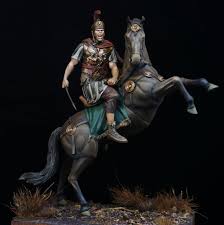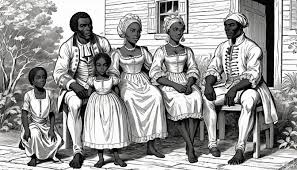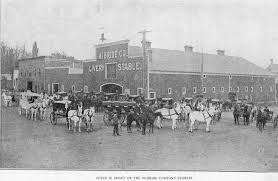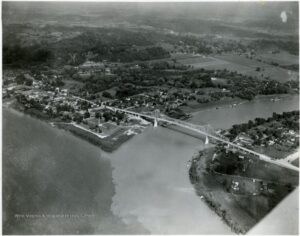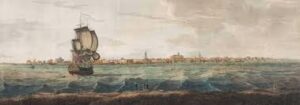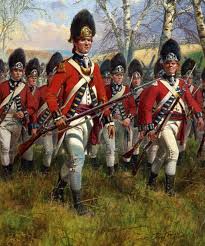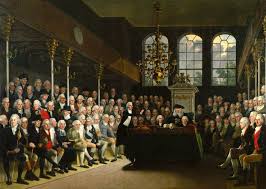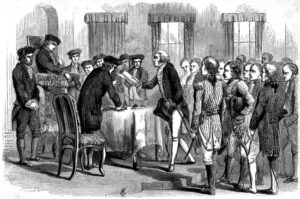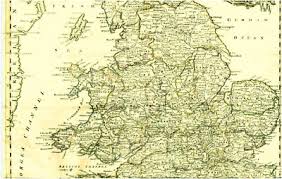Americanism Redux
February 13, your today, on the journey to the American Founding, 250 years ago, in 1775
The times are big with great events. What will be the consequence, is not in human sagacity to foretell.
* * * * * * *
(the first Tribunus)
Today, 250 years ago, put a ” in front and a ” in back of the quote above, and you’ll be reading the current edition of the Virginia Gazette, special insert.
The quote is from “Preface”, written by “Tribunus”, the fake name of the real person, Arthur Lee. It’s been placed in front of the long essay called “Summary View”, written but unsigned, penned by the author with the real name of Thomas Jefferson.
The long essay is six months’ old. Jefferson meant it to serve as instructions to Virginia’s delegates to last fall’s “Congress” that met in Philadelphia. Since another such Congress is planned for May, again in Philadelphia, “Summary View” is still in vogue, still in use, still in hand.
* * * * * * *
Still in hand is her hand in his, his hand in hers. She feels the kick. Birth isn’t far away. He’s next to her and notices her flinch. There they are, hand in hand, husband, wife, and baby-to-be.
The printer of a newspaper writes that a black man skilled in farming, with a pregnant wife skilled in housework, are up for sale, “both are well known, and not sold for their faults.”
Desperate to stay intact, today, 250 years ago, this black family knows their future is uncertain in Philadelphia, site of the upcoming “second” Congress.
* * * * * * *
(latter-day version)
Anthony Fortune is also in Philadelphia on this day. He’s deciding to change his work life. No more inn-keeping for him; clear the shelves, shut the windows, and lock the doors. Now, instead, it’s all about horses and the things they pull, be it cart or carriage or wagon. He’s going into the “livery stable” business, doing all things horses, from feeding to maintaining, selling the various equipment, devices, hardware (made of metal), and software (made of leather) for horse-powered movement. He hopes the customers who stayed at his inn will “reward his most earnest Endeavours to serve them with further Instances of this Good will, which he will be equally ready to acknowledge as studious to deserve.”
Uh…okay. One suggestion: maybe hire a writer to check over your advertising campaign.
* * * * * * *
(in better, later days)
It’s just a plain, old, tough day for James Cleveland. He’s at the confluence of the Great Kanawha and Ohio Rivers where about five months ago a battle was fought between Virginian soldiers and Native American tribes, the Battle of Point Pleasant that hardened colonial control of this region.
Damp air, leafless trees, cold ground, powerful waters.
Cleveland is sick, coughing and aching. Despite feeling awful, he’s trying to figure out how to get things done here. He’s been expecting a supply of nails, hand mill stones, corn, bacon, and salt. They’re either not available, in low supply, or in poor condition. Just as bad, he can’t find anyone to hire to help him move this substandard cargo. And just as bad again, even if he finds the muscle to move the stuff, the pathways are in terrible shape—roots, ruts, ravines, trees down, thick brush. Even the strongest animals with the best livery would break down in an hour. It’s a nightmare to haul anything. Oh, and that so-called “victory” by Lord Dunmore and Virginian forces at the Battle of Point Pleasant? Think again, Cleveland sees the shadows of Natives in the woods and they’re angry, brooding, resentful.
Any future James Cleveland sees begins with the end of his illness (hopefully) and some solution to his problems (good luck with that).
* * * * * * *
(fingers intact)
South of the coughing Cleveland, nine-fingered John McIntosh is in his home in Savannah, colony of Georgia. He sees land in his future, new acreage for him. He wants his own slice of earth from battle and war. Born in the Scottish Highlands, McIntosh had moved to the New World almost forty years ago. He joined the British Army in the 1740s and lost a finger in a sword fight during combat against Spain. He went to war again for the British Crown in the French and Indian War. He kept his hands safe as he gripped the weapons of bloodshed.
As compensation for his military service—embodied in his lost finger—McIntosh seeks 2000 acres in the new British colony of West Florida, where the imperial-colonial crisis is only news from far away. McIntosh is loyal to British rule and intends to extend British authority.
He’ll be that much more motivated if the British governor there grants his land claim near the Gulf.
* * * * * * *
(from where the future will come)
In Charleston, colony of South Carolina, Henry Laurens has been spending time talking, listening, watching people. It’s been part of a daily routine these past several days. Thinking as he walks from the docks to the customhouse, Laurens is ready to reach his conclusion about the current imperial-colonial crisis.
The salt water would surely carry British ships into the edge of the port. Cannon would roar, troops armed to the teeth would disembark for an invasion, carnage and suffering would ensue.
“The hearts even here will not be subdued.”
* * * * * * *
(their successor petitioners)
The Assembly in the colony of New Jersey won’t give up. They’re back for one more try, one more run at the prize. Despite the advice of Benjamin Franklin, colonial lobbyist extraordinaire, who states flatly that petitions to the British government are a waste of time, the Assembly debates, drafts, and signs another petition for King George III.
They state their loyalty, their grievances, and their loyalty again.
The colony’s deeply British governor, William Franklin, son of Benjamin from an adulterous encounter, opposes the petition.
Father Franklin and Son Franklin—the former a supporter of colonial rights and the latter a supporter of imperial power—share a rare moment of agreement on the worthlessness of further petitioning.
The Assembly ignores both Franklins and sends the petition to the nearest port, where a ship waits to sail eastward across the Atlantic.
One more time.
* * * * * * *
(the downtown they once monitored)
Eleven people in Plymouth, colony of Massachusetts, begin their new task. They have the responsibility of tracking, monitoring, and surveilling everyone in the town suspected of loyalty to British rule, power, and authority.
Report back to the Committee whenever you can.
* * * * * * *
(why do they train?)
They don’t need a task-force in Watertown and other smaller villages outside Boston, colony of Massachusetts. The people who live there have been seeing an unusual number of British infantry regiments—the Redcoats—out on special marches.
It’s exactly as if they’re training for something.
* * * * * * *
To repeat.
The times are big with great events. What will be the consequence, is not in human sagacity to foretell.
Also
(they’re making major decisions)
By today, 250 years ago, Parliament has been deep into its work. The House of Commons and the House of Lords have agreed that imperial laws, including the Coercive Acts, must be fully and aggressively enforced. They also agree that the colony of Massachusetts is in rebellion. Building on that consensus of majority, Parliament formally requests the Monarch, George III, to order British General Thomas Gage in Massachusetts to collect information on potential treason since December 31, 1774; to identify people responsible; and to start a commission that would determine their offenses and punishments.
The House of Commons also votes to add more than 2,000 new sailors to the British Navy.
* * * * * * *
(a new member coming)
A member of the King’s inner ring of advisors, the Earl of Dartmouth, follows the orders of George III and writes to imperial officeholders in the colony of New York. Please inform James Jauncey, Dartmouth writes, that he will be the newest appointee to the colony’s nine-member Council, replacing the deceased baronet, Sir William Johnson.
The seats of power. The right connections. The hand with the quill pen scratches black flourishes across stiff parchment. On three thousand miles of water it will sail.
And that’s how it’s done.
* * * * * * *
(split it three ways)
Lord Camden tells Lord Chatham that England can be divided into three groups. One group, the people with extensive land holdings, support war against the colonies. A second group, the common people, oppose war always and anywhere. A third group, the merchants and traders, oppose war against the colonies.
That’s the split, according to Lord Camden.
* * * * * * *
(Dublin, then)
In Dublin, in the British colonized and occupied Ireland, residents are increasingly nervous that departing British battalions of Redcoats will leave the city vulnerable to attack. Rumors are rampant that Spain has organized a naval squadron that is set to launch to Ireland any day now.
* * * * * * *
(John Wesley)
Three women seek the guidance of the founder of Methodism in the Christian faith, John Wesley. He responds to them, this week, 250 years ago.
To transform a first love into a pure love, speak openly.
Perfectness comes from use, over and over, with the final word being that which you hear from God and from Godly people.
There is a balance between reason and passion.
Openness, usefulness, balance. It’s a long road from the English countryside to Westminster corridors.
For You Now
Look anywhere in this Redux entry and you’ll see the future. That’s what I see, at least.
Take it from the top, from the first story, and proceed from there. Instructions. Family for sale. Changing work. Land preparation. Land seeking. Predicting. Petitioning. Watching others. Watching training. You see much of the same in the stories from England.
People live in the present and lean toward the future, 250 years ago today. They share this similarity with each other and with you.
The similarity quickly dissipates when you explore the futures they see. The same community of Philadelphia holds wildly different futures for the unnamed black family and the business-owner called Fortune. Their paths ahead aren’t determined, though the nature of the path’s surface surely offers divergent travels.
A key here is the linkage of stories. Some will link, some will connect, some will intersect. In the junctions much can change that is not visible or even possible in the present. The change can be sudden and shocking. The contact of change, however, will not shatter the continuity that existed before the junction. Resilience is in the remaining. The fracturing makes the dynamism. How they reconcile and recalibrate is the next bit of future.
All of this unfolds when you follow these stories to their joining.
We have numberless stories in our present. That makes the challenge of following linkage nearly impossible to manage and thus nearly impossible to overcome. But that doesn’t make it irrelevant. The relevance will show itself on its own schedule. And as the linkages appear, some will demand your attention and understanding. You can provide both with a fundamental appreciation of their past before the joining occurred.
The linkages will not be denied, not dammed up behind a barricade. The best you should do is ride the wave when the barricade breaks.
Suggestion
Take a moment to consider this: would you tell Tribunus that you, too, live in times big with great events?
(Your River)

